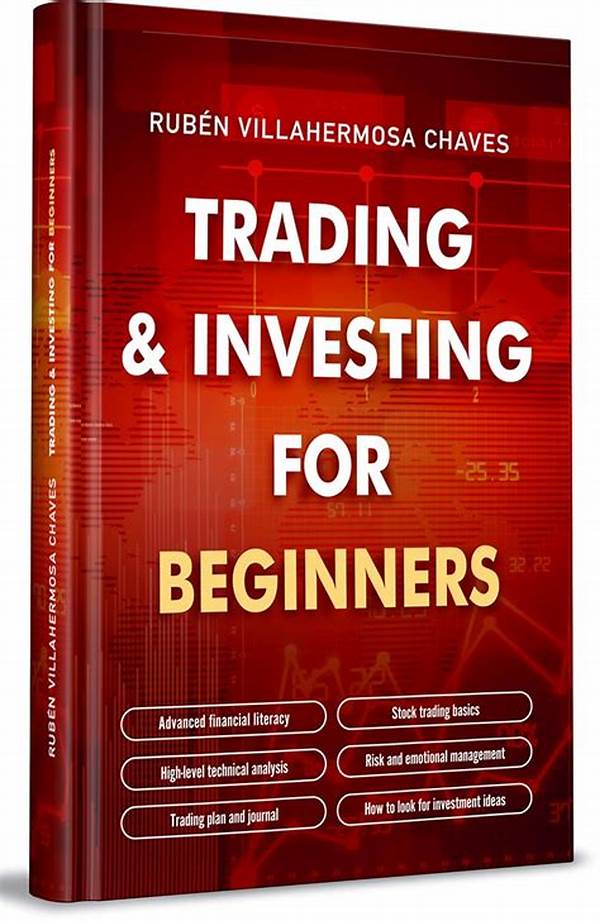Book Investing For Beginners
Diving into the complex world of investing can be both exciting and daunting, especially for beginners who are just starting on this financial journey. However, with the right resources, you can navigate this new territory with confidence. One such resource is investing books tailored specifically for beginners. These books offer insights and strategies from seasoned investors, breaking down complex concepts into manageable parts. You’ll learn everything from fundamental principles to advanced techniques, all while steadily building your knowledge and preparing to make informed investment decisions. Let’s explore how book investing for beginners can transform your financial mindset and equip you with the necessary tools to start this exhilarating journey.
Read More : The 7-day Investing Reset: A Simple Plan To Open Your First Account And Make Your First Trade!
Investing books are a treasure trove of wisdom, often written by some of the most successful investors in history. They provide a roadmap to avoiding common pitfalls, understanding market mechanisms, and unlocking new strategies to grow your wealth. For instance, titles like “The Intelligent Investor” by Benjamin Graham or “Rich Dad Poor Dad” by Robert Kiyosaki give valuable perspectives on wealth-building strategies that transcend generations. Each author brings unique insights, offering new angles on how to approach investments thoughtfully and strategically.
When you choose the right books for investing as a beginner, you’re not just making a purchase; you’re investing in your education and future. These resources help demystify the stock market’s intricacies, allowing you to grasp concepts like asset allocation, risk management, and portfolio diversification. The goal is to build a solid foundation that will serve you throughout your investment journey. With the right book in hand, you’re setting the stage for financial growth, learning directly from the experts who have mastered the art and science of investing.
Why Invest in Books for Beginners?
The beauty of book investing for beginners lies in the endless knowledge readers can absorb. Books distill complex investment philosophies into digestible formats, providing a solid starting point for anyone eager to dive into the investment world. Whether it’s Timothy Ferriss’s productivity hacks or Warren Buffett’s value investing principles, the wealth of knowledge available is boundless. Books are a timeless medium that leverages the power of language to transform how you think about money and investment. By aligning your investment decisions with the strategies outlined in these books, you harness the wisdom of the ages.
—
Understanding Book Investing: A Beginner’s Guide
Entering the investment world can feel like stepping into a new universe with its own language and rules. Fortunately, book investing for beginners offers a structured pathway to understanding these concepts. If you’re overwhelmed by stock market jargon or unsure where to begin, you’re not alone. Many seasoned investors started their journey with the investment classics, which laid the foundation for their financial literacy. The challenge is not finding a book but choosing the right one that resonates with your learning style and financial goals.
Books such as “A Random Walk Down Wall Street” by Burton Malkiel simplify the markets’ mysteries and offer a steady entry point for beginners. These books bring a structured approach to learning, methodically covering everything from stocks and bonds to managing a diversified portfolio. They serve as mentors-in-print, guiding you step by step through the intricacies of financial markets and various investment vehicles. The power of book investing for beginners is its ability to transform novices into informed investors who can make confident financial decisions.
Gaining Confidence through Knowledge
The more you read, the more confident you become in making investment choices. Knowledge truly is power, and books are one of the most powerful tools you have at your disposal. A well-rounded financial library equips you with the skills needed to assess risks, analyze potential investments, and understand global market trends. Remember, investing is as much about psychology as it is about numbers. The insights gained from investing books can arm you with the discipline required to navigate market fluctuations with ease.
Seeking out diverse perspectives and varying strategies can lead to a more comprehensive understanding of what works best for you. After all, investing is a deeply personal journey, and what works for one person may not work for you. So, start exploring the world of book investing for beginners, and embark on a journey toward financial self-discovery.
The Emotional Journey of Investing
Investing isn’t merely about numbers and charts; it’s an emotional rollercoaster where every decision counts. It’s easy to get swayed by market volatility, but books provide the emotional armor to stay the course. Strategies on remaining calm in turbulent times, sticking to your plan, or knowing when to pivot are invaluable lessons you’ll glean from reading. These stories and insights fuel your emotional resilience, helping you stay disciplined in your investment strategy.
—
Key Takeaways on Book Investing for Beginners
Objectives of Book Investing for Beginners
Reading investment books serves several key purposes for beginners. First, they aim to demystify the often complex world of finance. Many new investors find the sheer volume of information overwhelming, filled with jargon and terminology that can be intimidating. Books break down these barriers, simplifying complex topics into digestible pieces. This demystification process is crucial in building a foundation that new investors can rely on throughout their investing journey. By digesting this knowledge at their own pace, beginners can build confidence, reduce anxiety, and foster a genuine interest in financial markets.
Furthermore, book investing for beginners aims to provide practical strategies that can be implemented immediately. These strategies come straight from the experiences and lessons learned by seasoned investors who have navigated different market conditions. By applying this wisdom, new investors can develop their skillset, adapt to new challenges, and pursue investment opportunities with greater assurance. Practical, actionable advice is what sets apart truly valuable investing books, giving readers not just theory but real-world applications they can test and refine.
Finally, investing books seek to inspire and motivate. Many successful investors attribute their initial spark to a book that opened their eyes to the possibilities of financial independence. These narratives not only provide technical knowledge but also share stories of success and failure, adding a human element to the investing world. This inspiration drives readers to pursue their financial goals with renewed vigor and commitment. In essence, a good investing book serves as a mentor, motivating new investors to pursue their dreams, overcome obstacles, and stay true to their financial aspirations.
Choosing the Right Book Investing for Beginners
Exploring Knowledge and Strategies
Venturing into the realm of book investing for beginners opens up a world of knowledge and investment techniques. It’s essential to approach this journey with curiosity and an open mind, prepared to adapt various tips and tricks to your unique circumstances. The advantage of learning through books is the structured knowledge you gain at your own comfort and pace. This makes absorbing information more enjoyable and less daunting for beginners.
Books provide an array of strategies suitable for differing market conditions and individual risk appetites. You’ll encounter techniques ranging from conservative approaches like index investing to more aggressive strategies such as day trading or options trading. This diversity in learning helps you build a toolkit tailored to any market environment. Implementing these strategies effectively allows you to grow your investments and achieve desired financial outcomes.
Deepening Your Understanding
Integral to book investing for beginners is transforming vague financial concepts into well-defined strategies you can understand and apply. Renowned authors distill years of complex market experience into tips and narratives that are easy to digest. This nurturing of fundamental investment knowledge fosters analytical skills, equipping you to confidently decipher market data and make informed decisions.
Apart from the technical aspects, books also explore the psychological dimensions of investing—helping you master emotional responses to market developments. Understanding the behavioral aspects is crucial, as the emotional rollercoasters of fear and greed often cause drastic investment decisions. By harnessing the wisdom found in books, you’re better able to manage emotions, applying a level-headed approach to investment.
Implementing Learned Knowledge
Stepping forth with gained insights from book investing for beginners marks a significant shift in transforming you from a novice to a more seasoned investor. Implementing these learnings nurtures financial discipline and strategic decision-making capabilities, taking you one step closer to financial stability. Tapping into this resource provides a roadmap to navigate personal and market challenges, ensuring investment decisions align with your long-term objectives.
Numerous testimonials affirm the transformational impact books have for many beginners, transforming doubt into confidence and uncertainty into clarity. Thus, the emotional and educational fulfillment gained is invaluable. An investment in quality literature enriches your intellectual and financial journey, exploring new realms of wealth-building, paving the path to prosperity.
—




